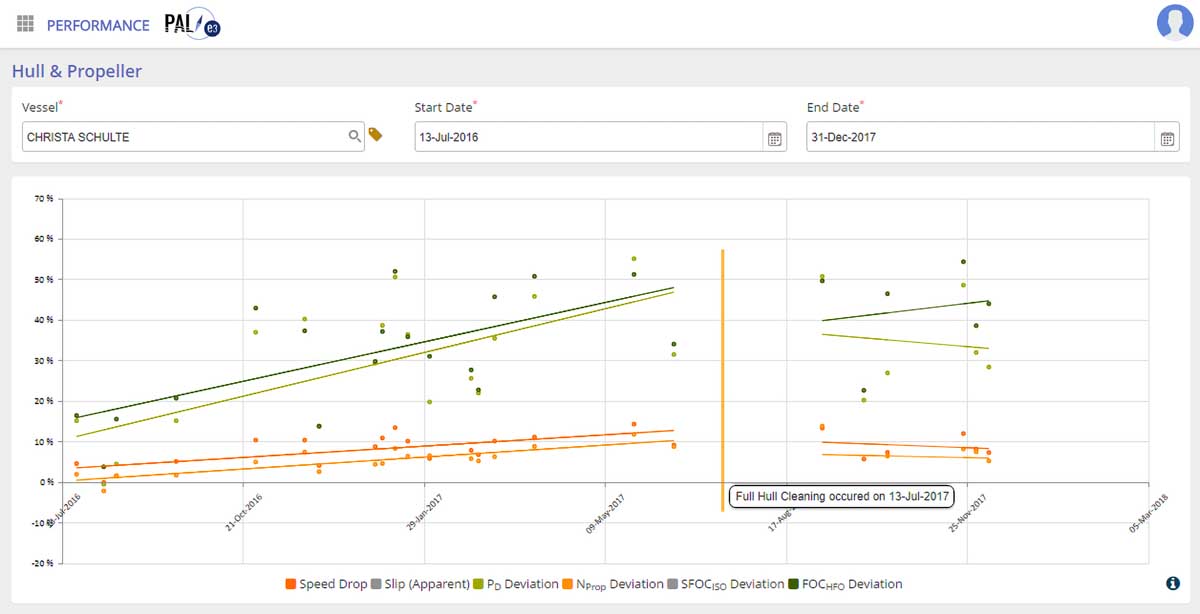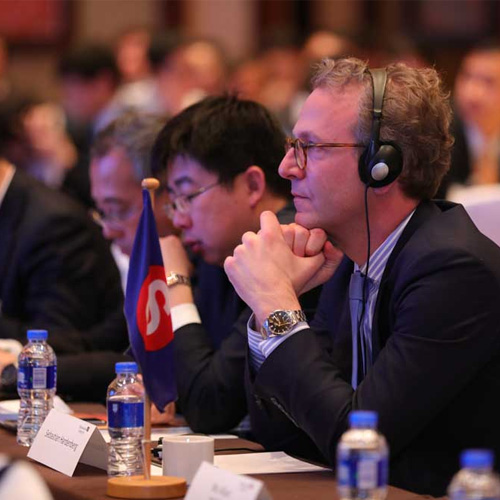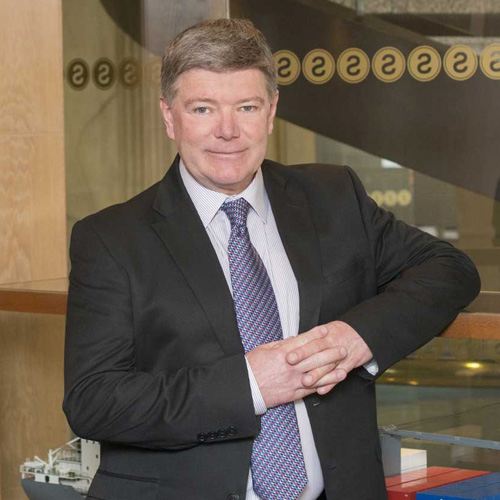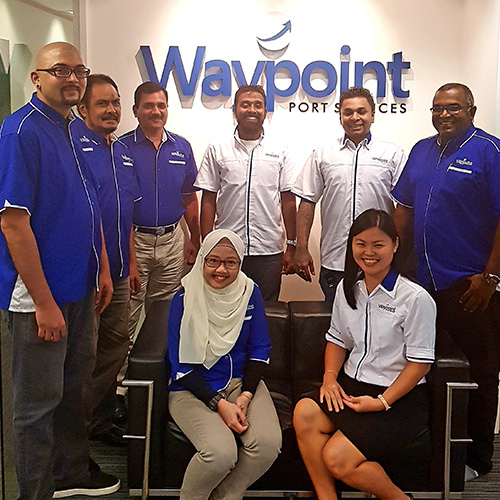Performance management is an essential part of efficient shipmanagement and operations.
Until recently, BSM relied on third party service providers and PAL Voyage to collect data and deliver performance analyses. This presented challenges because external providers, while advanced in their fields, could not deliver seamless integration with BSM’s systems, which inhibited the refinement of processes. Likewise, PAL Voyage was designed as a ship reporting tool rather than a platform for shore-based analysis.
Conducting performance-based analyses is complex by nature as many factors can influence a vessel’s hull and propeller conditions. Further, those factors need to be normalised, i.e. brought to reference condition, before the analysis methodology can be applied.
An example of this is weather conditions: wind, waves and currents can affect vessels in complex ways which are relative to their direction and draught. Understandably, to analyse a vessel’s performance, compared to when it was built, the effects of the environment must be nulled.
In a similar manner, the performance of a vessel’s main or auxiliary engines depends on the quality of fuel being used as well as the prevailing environmental conditions. To provide accurate analysis on an engine’s performance compared to its testbed condition, these factors must be accounted for as well as how much time has passed since its last overhaul.
The development of a methodology that delivers this type of layered analysis requires specialist knowledge in a range of fields.
To approach this problem in a centralised manner, BSM established the Fleet Performance Centre (FPC), with a team of two superintendents based in Athens, who are responsible for the development of the platform. The scope of the platform is to provide an extensive analysis of a vessel’s overall performance, including its machinery. Every sub-module built is delivered to MariApps as a complete program to be embedded in PAL.
The team recently grew with the addition of two analysts, who will build an intricate ship particular database, and four marine superintendents, who will contribute their seafarer knowledge into the development process while also inspecting vessels to implement a mind-set of operational efficiency on board.
Bernhard Schulte was the first customer of the FPC platform, with 66 of its vessels currently modelled. Over the coming months all fully managed ships will join the platform.
BSM strives to become the world’s most energy efficient ship manager and the operations of the FPC will provide all the tools needed to achieve this. With the help of the Company’s seafarers and fleet teams the FPC will lead the way towards the realisation of this core strategy.





